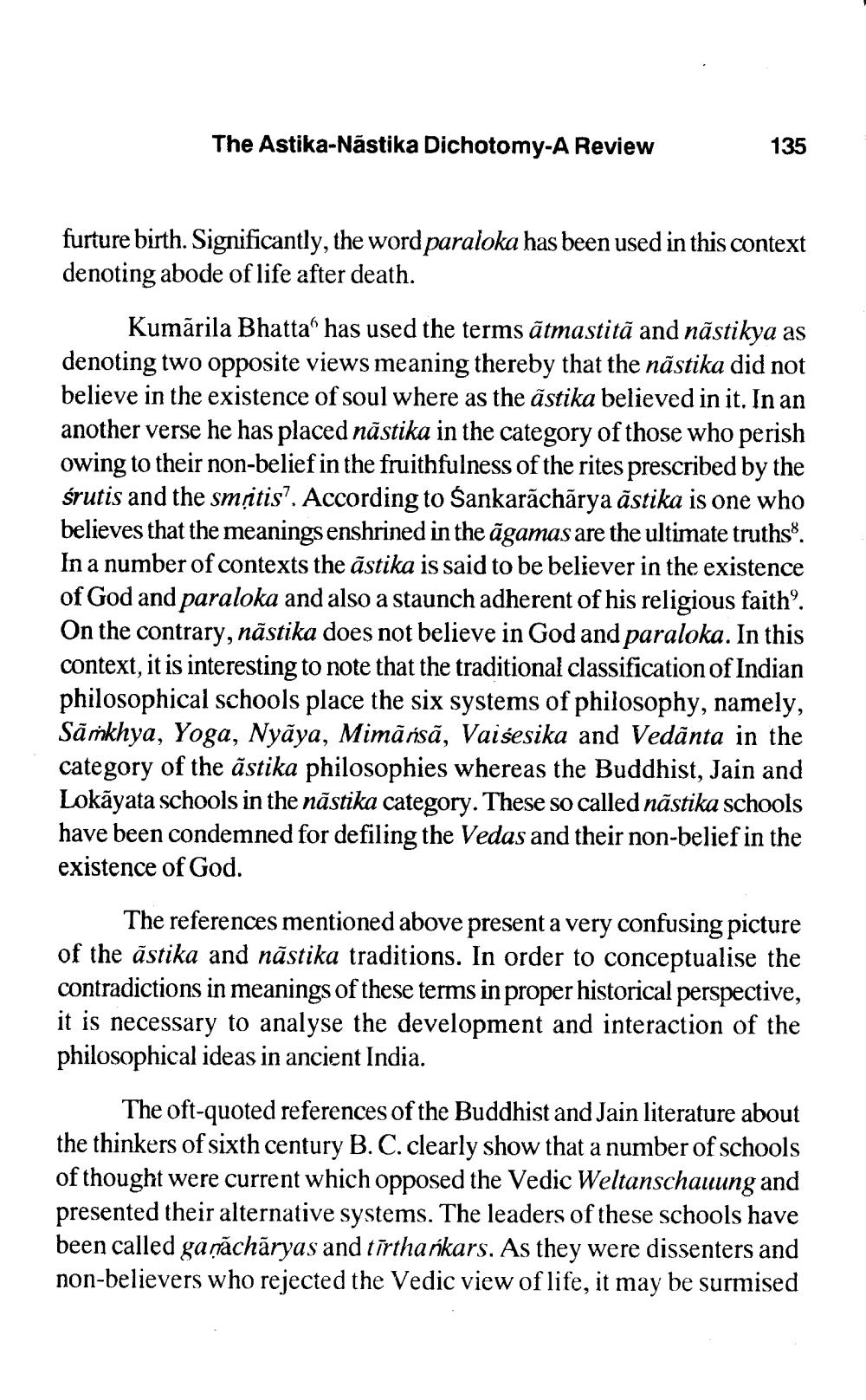________________
The Astika-Năstika Dichotomy-A Review
135
furture birth. Significantly, the word paraloka has been used in this context denoting abode of life after death.
Kumãrila Bhatta has used the terms ātmastitã and năstikya as denoting two opposite views meaning thereby that the năstika did not believe in the existence of soul where as the ăstika believed in it. In an another verse he has placed năstika in the category of those who perish owing to their non-belief in the fruithfulness of the rites prescribed by the śrutis and the smritis?. According to Śankarãchārya ăstika is one who believes that the meanings enshrined in the āgamas are the ultimate truths. In a number of contexts the ăstika is said to be believer in the existence of God and paraloka and also a staunch adherent of his religious faith'. On the contrary, năstika does not believe in God and paraloka. In this context, it is interesting to note that the traditional classification of Indian philosophical schools place the six systems of philosophy, namely, Sãmkhya, Yoga, Nyāya, Mimāńsã, Vaišesika and Vedānta in the category of the ăstika philosophies whereas the Buddhist, Jain and Lokāyata schools in the năstika category. These so called năstika schools have been condemned for defiling the Vedas and their non-belief in the existence of God.
The references mentioned above present a very confusing picture of the ăstika and năstika traditions. In order to conceptualise the contradictions in meanings of these terms in proper historical perspective, it is necessary to analyse the development and interaction of the philosophical ideas in ancient India.
The oft-quoted references of the Buddhist and Jain literature about the thinkers of sixth century B.C. clearly show that a number of schools of thought were current which opposed the Vedic Weltanschauung and presented their alternative systems. The leaders of these schools have been called gañchāryas and tirthařkars. As they were dissenters and non-believers who rejected the Vedic view of life, it may be surmised




